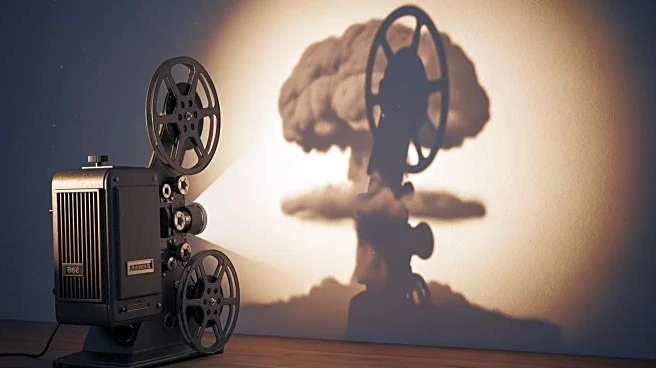What's Happening?
The film 'A House of Dynamite,' directed by Kathryn Bigelow, presents a scenario of nuclear war threatening the United States. The movie, set to release on Netflix, explores the country's preparedness
for such a crisis, highlighting potential failures in equipment and leadership. The narrative unfolds in three parts, each offering a different perspective on the imminent threat, from detection to impact. Despite its serious theme, the film's execution has been criticized for its unrealistic dialogue and portrayal of characters, which detracts from its intended message of urgency and existential dread.
Why It's Important?
The film raises critical questions about national security and the readiness of the United States to handle nuclear threats. It underscores the importance of strategic planning and effective communication among leaders during crises. While the movie's portrayal may be exaggerated, it serves as a reminder of the potential consequences of unpreparedness in the face of global threats. The depiction of a nuclear scenario, albeit dramatized, could influence public discourse on defense policies and the need for robust security measures.
What's Next?
As the film releases, it may spark discussions among policymakers, defense experts, and the public regarding the nation's current defense strategies and preparedness for nuclear threats. The portrayal of leadership and decision-making in the film could lead to debates on the effectiveness of current protocols and the need for improvements. Additionally, the film's reception might influence future cinematic portrayals of similar themes, potentially leading to more realistic and impactful narratives.
Beyond the Headlines
The film's depiction of nuclear war touches on ethical considerations regarding the use of nuclear weapons and the responsibilities of global leaders in preventing such conflicts. It also highlights cultural perceptions of disaster preparedness and the role of media in shaping public understanding of security issues. The exaggerated portrayal may prompt viewers to question the accuracy of media representations and seek more informed perspectives on national security.










